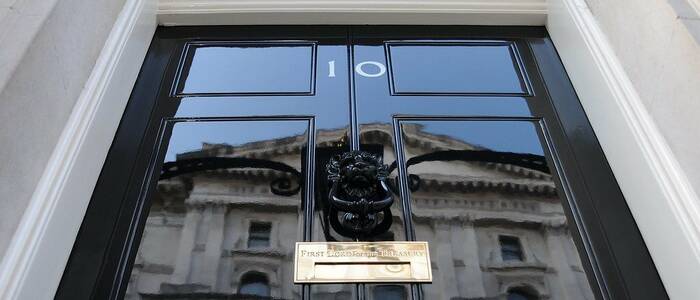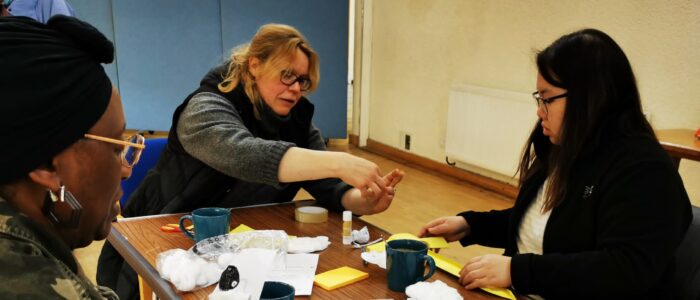Ten for Number 10: Expanding our ideas for Rishi Sunak’s Government

When Rishi Sunak was asked to become Prime Minister two weeks ago, I tweeted 10 ideas the new government1 should consider as they take office, which are set out in the table below. We’ll be exploring some of these ideas more closely in future blogs but I wanted to give a more detailed explanation of some of the others, so that we can start the conversation.
At FaithAction, we endeavour to cultivate a solution-focused approach when responding to issues.
We also want to ensure that your voices are heard, and we’d like to hear your thoughts of what approaches and priorities the current government should take. We’ll also share your input with parliamentarians from the All-Party Parliamentary on Faith and Society, who we work closely with as secretariat.
You can send us your thoughts using the form below.
1. If you’re unfamiliar with who they are, check out our newly updates guides for the Cabinet and Shadow Cabinet
#Ten10
Recruit all the talents in government and the country including Voluntary Sector and Faith
The Prime Minister’s choice of ministers has already stirred up controversy – but our request is a broader call. There are many talented and dedicated people from every walk of life. There is much wisdom and problem-solving ability in the faith and the voluntary sector; it’s time to look beyond Whitehall (Parliament, parties and the civil service) and the City of London (financial district) for initiatives and solutions for the UK in 2022.
Time to be strategic with stimulus—levelling up is not a catchphrase but a social justice phrase. There is an opportunity to do something significant for the UK in these difficult times. (e.g launch of NHS in post-war austerity)
The social care system needs an honest cross-party approach. We must consider an aging population and the tax burden falling on a shrinking younger population. A practical review of our approach to migration needs to be grappled with, away from soundbites and cheap headlines.
Many developed nations have dropping birth rates. There is a real possibility that there will not be sufficient a tax base to support public services due to facing a shortage of workers in a time of low unemployment. Redesigning a social care system for the future, turning migration to an asset instead of a cheap headline, and combining compassion with pragmatism are all things in which faith can play a significant role.
Many faith communities have been at the forefront of responding to the recent immigration issues of Hong Kongers, Afghans and Ukrainians. People have literally put their money, and their homes, where their mouth is.
One obvious step should be around allowing those seeking settlement to work and thus contribute while their status is decided.
Mobilising social and faith capital—it’s not all about the finance sector, it’s not all about public sector spending. Civil society has a role to play and should be adequately resourced and consulted to design and produce solutions.
With the many challenges (e.g. costs of living) and injustices (e.g. health inequalities) that we face in the UK today, we cannot pursue the same patterns and expect change. Thus, we cannot only look to public services or private enterprise to effect changes. Government needs to utilize the benefits found in social and faith capital—the human connections, shared knowledge, and trust that is exemplified by faith and community organisations. These are best typified by the African notion that ‘it takes a village to raise a child’.
This may well lead to a more fundamental national conversation about the development of UK culture and a rebalance of the rights of the individual – to better appreciate the advantage of family, group and community.
Education needs to not be at the whim of ideologies and broaden its ability to create social mobility as well as build on values in communities.
Government has to be about protection and security; protection of the vulnerable whether at home or abroad and security; economic, social, and financial to achieve this. ‘Doing our bit’ has been one of the ways we have been a leading nation, whether this has been in an unreported situation such as Sierra Leone or closer to home like Ukraine.
Faith as a part of civil society has a role to hold up issues of justice and conscience to governments. Because of the international nature of faith, it means that issues of injustice outside news patterns and interest will often be flagged up by faith communities.
Faith should be seen as an asset, not a risk, and therefore there should be a Minister for Faith at the Cabinet table
As faith is not just for a crisis or election season, a faith commissioner should be established be a conduit for faith into Government, demonstrating the possibilities for the role of faith in the public square.
The impact and possibilities of faith are far too important to leave to the whims of the election cycle. A permanent role – such as a faith commissioner would give the work of faith and government more permanence and could capitalise on the longevity of faith communities.
A faith task and finish group should be established to look at knotty issues for the UK: a) levelling up and health inequalities, b) immigration, migration and integration, c) cost of living crisis.
Government should support and sign the Faith Covenant, established by the APPG on Faith and Society.

About Daniel Singleton
National Executive Director
Daniel Singleton has been the National Executive Director of FaithAction since 2007. This role has seen Daniel forge close working relationships across a number of national government departments, as well as local statutory and voluntary-sector bodies. As part of FaithAction’s mission to connect national and local government with grassroots organisations, Daniel also meets regularly with FaithAction member groups to help them develop in their social action.


